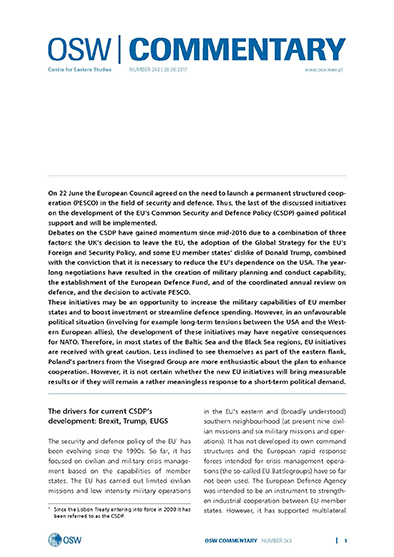The story that never ends. A new stage in the energy dispute between Russia and Belarus
The story that never ends. A new stage in the energy dispute between Russia and Belarus
Author(s): Szymon Kardaś, Kamil Kłysiński
Subject(s): Energy and Environmental Studies, Economic policy, International relations/trade, Geopolitics
Published by: OSW Ośrodek Studiów Wschodnich im. Marka Karpia
Keywords: Russia; Belarus; energy; international relations
Summary/Abstract: The energy sector is an essential area in Russian-Belarusian relations. Belarus is almost totally dependent on oil and gas supplies from Russia, and preferential prices are necessary for Minsk to maintain its outdated economic model and social stability. Russia in turn has used the mechanism of subsidising Belarus as a means to bolster its political influence. The disagreements between Minsk and Moscow over the rules of co-operation and oil and gas prices provoke regular disputes on the subject of energy.Over the past few years, the situation in the area of energy co-operation has become more strained due to Russia’s desire to optimise the costs of supporting its Belarusian ally alongside its growing disappointment with this ally’s disloyalty. This has been accompanied by the escalating recession on the Belarusian economy forcing the Belarusian government to apply for more and more subsidies. As a result, another Russian-Belarusian energy dispute has been escalating since the beginning of 2016, turning into an unprecedentedly long and profound crisis extending over almost all aspects of co-operation between the two countries. In April this year, the two parties developed a package of agreements regulating most of the problems, most importantly this includes the conditions of oil and gas supplies in the coming years. However, in practice, many issues remain unclear, and this creates room for further conflicts. Moscow and Minsk are moderately satisfied with the deal and treat it as a temporary compromise. It is clear that the two parties do not trust one another and have conflicting goals. Belarus still hopes for significantly higher subsidies, but is attempting to assert its independence in domestic and foreign policy. In turn, the Kremlin, which has been reducing the subsidies, would only be ready to increase its support at the price of Minsk becoming unconditionally subordinate to Moscow.
Series: OSW Commentary
- Page Count: 6
- Publication Year: 2017
- Language: English
- Content File-PDF

